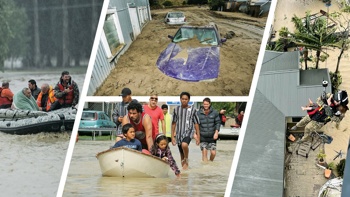What’s in a name? “That which we call a rose by any other name would smell as sweet”.
Shakespeare certainly knew what he was talking about. Yet again it seems that he was ahead of his time, providing us with a quote, not just for the ages, but right now.
A recent study has found that many immigrants are changing their names to something a little more kiwi to enhance their prospects of success, or indeed, acceptance. A recent story in the New Zealand Herald revealed how Indian migrant, Faiaaz Contractor discovered his career prospects improved greatly by simply changing his first name to Frank.
This highlights an issue which we have, as a nation struggled with for quite some time. But it’s one that is often ignored when we limit our discussion to a bicultural one of Maori/Pakeha. While there might be work to do on that side of things, I would argue that on that score, we are progressing pretty well.
The real issue with racism in NZ is revealed when we spread the net a little wider to examine our attitudes to other cultures and races. In this respect, we are failing dismally.
You don’t have to look too far back to the ill-conceived and poorly disguised race-baiting campaign run by the Labour party around Chinese sounding names and the property market, where judgments were made about who was buying our property simply based on a name. It also conveniently tapped into the kind of racism that still seems to be quietly accepted, or at least pretty close to the surface.
I’m not sure that we actually needed a study to tell us that immigrants were “kiwi-ising” their names as I viewed it as a commonly known fact. But it is good to have what might have been an urban myth confirmed.
Of course, it may be that one aim of the name-changing practice might be to avoid imposing tricky pronunciation on dim-witted or lazy kiwis. OK, that might be a little harsh but I would suggest that the real reason is that migrants know all too well that Shakespeare was right when he posed the question about the rose. In fact, he too was pondering the effect of a particular surname and the passions or hatred it aroused.
In any event, the issue of Chinese and other immigrants changing their names reveals we still have a long way to go when it comes to dealing with questions of race.
As the song from the Broadway musical Avenue Q goes – “Everyone’s a little bit racist”
Perhaps humans have evolved to be a little xenophobic by instinct in addition to negative experiences and ignorance. And I’m not sure it’s realistic to expect that we are all going to be able to stop our own initial reactions or subconscious thoughts.
But in the conversation around the relationship between Māori and Pakeha, we seem to have tacitly accepted that other forms of racism are not so bad. I don’t really want to call it a national disgrace but it would only take a few conversations with Chinese kiwis to agree that perhaps it is. A friend of mine has recounted horrendous stories of comments hurled across the street simply for being in the same place as someone with a bigoted attitude.
But the challenge lies in the way we respond to our own thoughts or prejudices before we open our mouths or decide how we engage with people. And it shouldn’t be that hard.
There is a quote from Pride and Prejudice which relates to the effort we undertake to be pleasant to strangers. In reference to Mr Darcy’s rudeness, Elizabeth Bennett refers to her own inability to play the piano well “I have always supposed it to be my own fault—because I will not take the trouble of practising.
Surely this is the case with our attitudes on race as well. We need more practice.
Yes, maybe we all have our stereotypes and reactions in judging people by what they wear, how they speak and how they look. But isn’t it time we took the time to practice and consider whether we need to take a good look at how we are treating each other.
On a positive note, my young children don’t seem to struggle with the same problem. Possibly this is because they have born into a much more multicultural world where the sight of someone whose name is different, or looks different, is not such a big deal to them. Here’s hoping that perhaps they don’t listen to their parents on this one.
Take your Radio, Podcasts and Music with you









